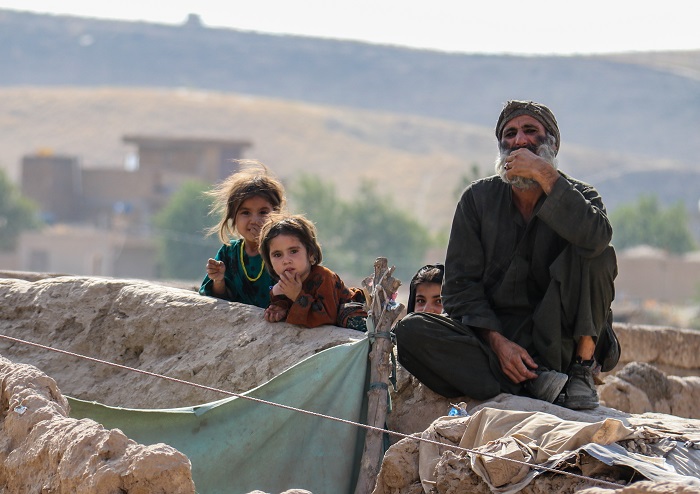headline news bulletin news
Afghanistan’s Taliban government on Saturday seized on an off-the-cuff remark by US President Joe Biden to underscore their claim that there was no Al-Qaeda threat in the country. bulletin news
Biden was leaving a press conference on Friday on the US Supreme Court’s decision to block his student debt relief program when a reporter asked if he admitted to mistakes during the withdrawal from Afghanistan in 2021.
“No, no. All the evidence is coming back,” he replied, according to a White House transcript.
“Do you remember what I said about Afghanistan? I said al Qaeda would not be there. I said it wouldn’t be there. I said we’d get help from the Taliban. What’s happening now? What’s going on? Read your press. I was right.”
The question was prompted by a report released Friday which said US officials were inhibited during mass evacuations from Afghanistan in 2021 by a lack of clear decision-making, an absence of centralised crisis management and confusing public messaging.
The so-called After Action Review was ordered by Secretary of State Antony Blinken after outrage over the chaotic scenes in Kabul as Taliban fighters seized control following the end of the 20-year US military presence.
On Saturday, the Afghan ministry of foreign affairs seized on Biden’s comment.
“We consider remarks by US President Joe Biden about non-existence of armed groups in Afghanistan as acknowledgement of reality,” the ministry said in a statement.
“It refutes the recent report by UN Sanctions Monitoring Team alleging the presence & operation of over twenty armed groups in Afghanistan.”

In May, a UN report said there were indications armed groups such as Al-Qaeda were rebuilding in the country.
“The link between the Taliban and both Al-Qaeda and Tehrik-e-Taliban Pakistan (TTP) remains strong and symbiotic,” it said.
“A range of terrorist groups have greater freedom of manoeuvre under the Taliban de facto authorities. They are making good use of this, and the threat of terrorism is rising in both Afghanistan and the region.”
headline news bulletin news
Afghanistan’s Taliban rulers insist they do not allow the country’s soil to be used by armed groups plotting against other nations, and deny the presence of Al-Qaeda.
They have not acknowledged the killing of Al-Qaeda leader Ayman al-Zawahiri by a US drone strike in central Kabul last year, saying investigations into the incident are continuing.
bur-fox/lb
© Agence France-Presse. All rights are reserved.
headline news online news
Notes from APS Radio News
The “Costs of War”, a project affiliated with Brown University, has itemized the costs associated with the wars in Iraq and in Afghanistan:
Over 801,000 people have died in the post-9/11 wars due to direct war violence, and several times as many due to the reverberating effects of war
Over 335,000 civilians have been killed as a result of the fighting
37 million — the number of war refugees and displaced persons
The US federal price tag for the post-9/11 wars is over $6.4 trillion
The US government is conducting counterterror activities in 85 countries
The wars have been accompanied by violations of human rights and civil liberties, in the US and abroad.
In addition, the website makes mention of this fact: Since the commencement of these wars, there have been 30,177 suicides of veterans of these wars.
According to a number of economists, the expenditure of vast sums of money—trillions of dollars—on these wars has reduced substantially the purchasing power of the dollar.
Observers have called inflation a “hidden tax”.
During the 1990’s the Clinton administration gave tacit if not explicit support to the Taliban government that took over the country during that time after over a decade of US and Soviet interventions in Afghanistan in the 1980’s.
During the late 1970’s then National Security Advisor Zbigniew Brzezinski oversaw surrpetitious intervention, which, in its turn, caused the secular government in Afghanistan to petition the Soviet Union to intervene.
According to the author Jean-Charles Brisard, in the summer of 2001, representatives of the Bush Administration and those of Unocal held a series of meetings with representatives of the Taliban government, for the purpose of obtaining rights of way for the emplacement & construction of a massive pipeline.
When the negotiations came to grief, Bush representatives threatened the Taliban with attacks against the country, Mr. Brisard described in his book, “Forbidden Truth”.
Following the commencement of Soviet and US intervention in Afghanistan in the 1980’s, the country devloved into spheres of influnece dominated by various warlords.
The Pashtuns are the largest ethnic group in Afghanistan; they form a substantial precentage of the population on both sides of Afghanistan’s border with Pakistan.
The Taliban are comprised of members of the Pashtuns, which are the largest ethnic group in Afghanistan.
During the 1960’s and 1970’s, compared to the the 1990’s and beyond, Afghanistan had governments that were deemed more secular.
During that time women attended schools and were more likely to wear Western type clothing.
As a result of actions and policies implemented National Security advisor, Zbigniew Brzezinski, during the Carter administration, the government in Afghanistan in the late 1970’s requested Soviet assistance.
After the Soviet armed forces had entered Afghanistan, the CIA funded and armed groups like the Mujahideen and other militant Islamists.
For its part, the Project for a New American Century, a neo-conservative group founded in 1997, envisioned increased US activity in Eurasia and a geo-strategic surrounding of China and Russia, in the context of natural resources.
For example, E-International Relations described PNAC in these terms.
“In this way, the PNAC acted as a catalyst of different neoconservative ideas of the “last generation.” Above all, the PNAC’s foreign policy vision seemed to be in perfect harmony with that of George W. Bush’s first term to which, as U.S. interventions in Afghanistan in 2001 and above all in Iraq in 2003, attest. For its members, nothing could ever hinder the ever-steady march of American power.”
headline news bulletin news


